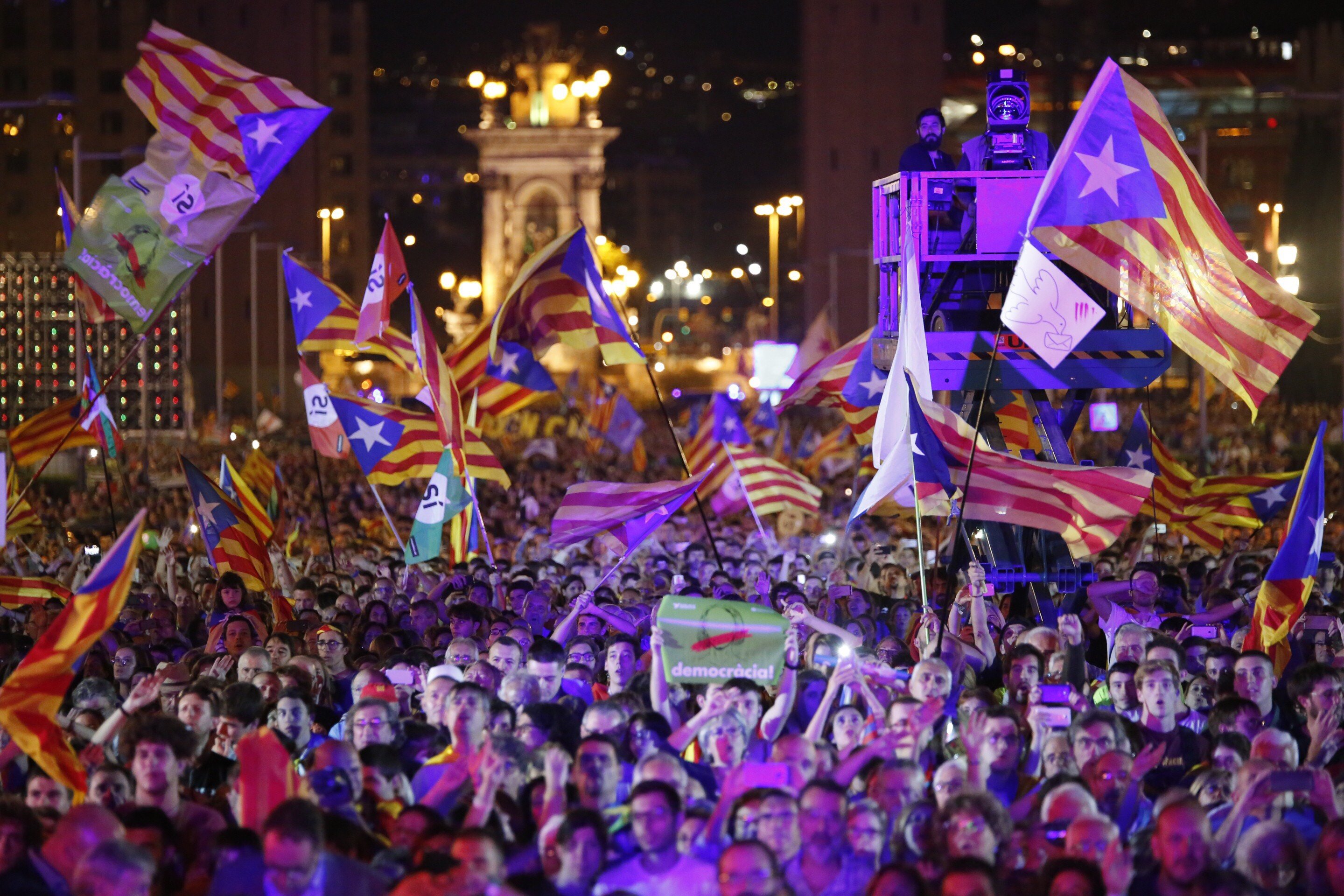Spain's Civil Guard has interrogated a well-known promoter of major Catalan events - Gemma Recoder - who was one of the organizers of the final act for the "Yes" campaign prior to the Catalan referendum, held on 29th September 2017 at the base of Barcelona's Montjuïc mountain (pictured). As Recoder explains, they "called me to make a statement as the person responsible for bringing performers to the event on 29th September. They want to know who got paid". Recoder is artistic director of the annual Canet Rock festival and of Barcelona's Luz de Gas festival, among other events.
Recoder said in a tweet this Saturday that the "artists and organization [of the mentioned event] worked for free". She also said that the police officers used intimidatory tactics to pressure her. "When I started my statement they told me they had images of me at demonstrations and political events". Recoder concluded her tweet saying: "Let's stand up for our rights with no fear!"
This interrogation is one of those carried out by the Civil Guard in its role as judicial police "in relation to an investigation consented by Court of Instruction 13 in Barcelona", according to the police summons. The judge conducting the case is Juan Antonio Ramírez Sunyer, the most active in the judicial investigation of the Catalan referendum.
Em van citar a declarar com a responsable x portar artistes a l’acte del 29S.Volen saber qui va cobrar. Artistes i organització vam treballar de franc.A l'iniciar la declaració em van dir que tenen imatges meves a manis i actes reivindicatius.Defensem els nostres drets sense por! pic.twitter.com/ry03CGSwwA
— Gemma Recoder M (@GemmaRecoderM) 9 of February 2018
Not paid at all
The paramilitary Civil Guard have for days been investigating the final event of the Yes campaign prior to the independence referendum. Civil Guard officers have contacted the bands that performed there to ask for the bills they presented for their work at the concert. Among others, they approached Catalan group Sopa de Cabra, as singer Gerard Quintana explained. In these cases, the band members were not required to make a formal statement. Quintana, like Recoder, explained that they did not charge any fee and that "everyone covered their own costs".
Lawyers defending some of those called to make statements in these cases have asked the judge to stop these practices, considering that they are outside judicial protection and are being performed outside the legal process, with the parties involved not able to be present at the interrogations, which generates defencelessness, they say.
The judge has rejected the latest request in this regard, alleging that the rights to defence are "limited to the judicial actions carried out by the court that conducts the case and not the investigative actions being carried out by the judicial police", in reference to the Civil Guard.

